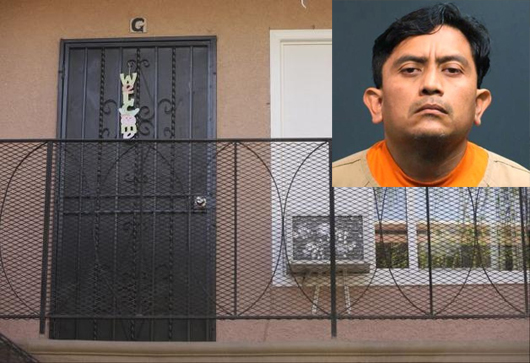California, May 22: A 25-year-old woman who went missing 10 years ago in California has told police she was forced to marry her captor and have his child.
The unnamed woman contacted police shortly after communicating with her sister on Facebook, officers said.
Isidro Garcia, 41, was arrested on Tuesday on suspicion of kidnapping, rape and false imprisonment.
Police said in a statement he had been living with the girl's family at the time of her disappearance.
The abuse began in 2004, the statement said, when Mr Garcia was dating the victim's mother and residing with her and her daughters in Santa Ana, a city in Orange County.
The police allege that Mr Garcia began sexually assaulting the victim in June of that year, only four months after the girl arrived in the US from Mexico.
In August, he assaulted the victim's mother and drugged the teenager, driving her 26 miles north to Compton, Los Angeles, where she was locked in a garage, say police.
"Over the course of the following months and years, Mr Garcia repeatedly told the victim her family had given up looking for her, and if she tried to go back to them, the family would be deported," police said.
The two moved on several occasions to avoid police detection, and used different identities, the police statement said.
Mr Garcia frequently physically and sexually assaulted the victim, it is alleged, and the two of them worked together at a night cleaning service.
"Even with the opportunity to escape, after years of physical and mental abuse, the victim saw no way out of her situation and lived a life with Garcia under sustained physical and mental abuse," police said.
At a press conference, Corporal Anthony Bertagna of the Santa Ana Police Department told reporters Mr Garcia had "brainwashed" her.
He said that in 2007, he forced the woman into a marriage, using documents he obtained in Mexico, and in 2012 the two had a child.
Recently, she contacted her sister on Facebook and was told that her mother had indeed been trying to find her, using a Spanish language newspaper and television station.
The communication with her sister made her realise she needed to leave, said Mr Bertagna, and on Monday she went to police to report that she was a victim of domestic abuse, and she told them she had been abducted.
The following day, police formally arrested Mr Garcia on suspicion of kidnapping for rape, lewd acts with a minor and false imprisonment. He has not been charged.
Neighbours in the street in Bell Gardens, Los Angeles, where the couple lived in recent years said on Wednesday evening they were stunned by the news, describing them as a happy couple who doted on their young daughter and even hosted parties.
The arrest comes a year after three women who went missing separately about a decade earlier were rescued from a house in Cleveland, Ohio.
Their captor, Ariel Castro, killed himself in prison in September 2013 at the beginning of a life sentence plus 1,000 years.






Comments
Add new comment